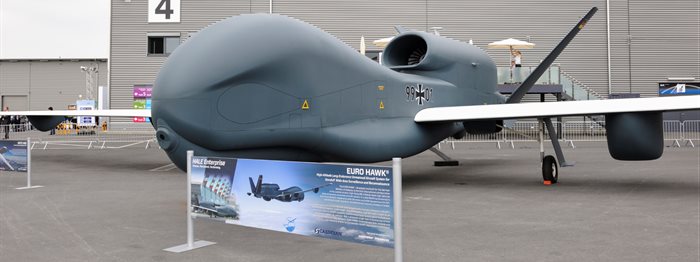 The sixth University of Birmingham Policy Commission examines the security implications for the British Government of drone technology, both civil and military. It argues that drones, or what it, following the RAF, prefer to call Remotely Piloted Aircraft (RPA), can under proper legal regulation continue to deliver ‘significant benefits’ for UK national security policy and economy in the coming decades. The Commission argues that the Government, and especially the Ministry of Defence (MoD), should do more to reach out to the public over what the Commission sees as the globally inevitable use of remotely piloted aircraft in armed conflict, and in domestic surveillance.
The sixth University of Birmingham Policy Commission examines the security implications for the British Government of drone technology, both civil and military. It argues that drones, or what it, following the RAF, prefer to call Remotely Piloted Aircraft (RPA), can under proper legal regulation continue to deliver ‘significant benefits’ for UK national security policy and economy in the coming decades. The Commission argues that the Government, and especially the Ministry of Defence (MoD), should do more to reach out to the public over what the Commission sees as the globally inevitable use of remotely piloted aircraft in armed conflict, and in domestic surveillance.
The Report argues that in the next 20 years, drones will become an integral part of Britain’s aerospace capability, providing both advanced surveillance and precision weapons delivery, whether in support of UK forces deployed overseas as in Afghanistan, or preventing mass atrocities as with the British Government’s decision to deploy the RAF Reaper drones against the Islamic State (ISIS). This decision was announced after the Report was completed, but is entirely consistent with its conclusions.
The Report examines distinctive and unavoidable choices for the United Kingdom over a crucial emerging technology, and sets out the under-appreciated distinction between legally constrained British practice and the US Government’s cross-border counter-terrorism strikes which dominate and distort public debate.
The Commission considers various moral arguments and concludes that the current and emerging generation of RPA pose no greater ethical challenges than those already involved in decisions to use any other type of UK military asset. The Report shows clearly that the UK has operated its armed Reapers in Afghanistan according to the same strict rules of engagement that it applies to manned aircraft.
But the Commission adds its voice to the wider coalition of international opinion that warns against the development of ‘killer robots’ – or what the Commission terms, following the emerging international legal terminology, Lethal Autonomous Weapons Systems (LAWS). The Commission believes that it will not be possible to develop autonomous weapons that can meet the core legal obligation under international humanitarian law to distinguish between combatants and civilians. As a result, the Commission recommends that the UK government take a leading role in the arms control negotiations that are due to resume next month in Geneva, but it recognises that some nations may ignore such restraint. The Commission therefore encourages the UK to help secure a new and widely endorsed international normative framework.
A key objective of the Policy Commission has been to cut through some of the over-simplifications and misconceptions that shape much of the current British debate on drone technology. The Commission has brought together leading academics from the Institute for Conflict, Cooperation and Security at the University of Birmingham with NGO experts, and distinguished former public servants. It has taken evidence from a wide range of British, US, and French experts, as well as inviting written submissions from around the world.
Further information about the Policy Commission VI. The Security Impact of Drones.